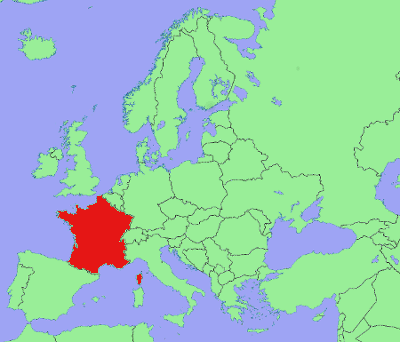
Circle the area on this map

C. The Mediterranean is on the southern shore of France; the Bay of Biscay is on the western shore; and the English Channel and North Sea are to the north. All of these bodies of water are part of the Atlantic Ocean.
B. Nice is the largest city on the French Riviera, which was one of the first modern resort areas. It began as a winter health resort for the British upper class at the end of the 18th century. The Rhone is a river that empties into the Mediterranean on the French coast.
A. The Nice attack was the third major terrorist attack in France in 18 months. A total of 147 people were killed in terrorist attacks in and around Paris in January and November of last year.
D. It was a prison-fortress which often jailed people – including political prisoners – at the arbitrary will of the French king. The people of Paris stormed the Bastille on July 14, 1789, to arm themselves with ammunition and gunpowder stored there and to free the prisoners. The holiday is commonly called Bastille Day in English-speaking nations.